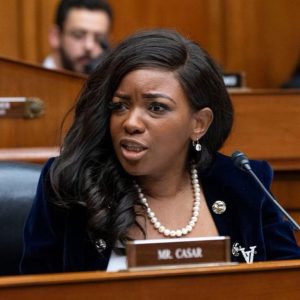Introduction
In a highly charged interview on CBS, Vice President J.D. Vance responded forcefully to allegations that conservative media were attempting to tarnish Tulsi Gabbard’s reputation amid her nomination for Director of National Intelligence. During the conversation, CBS anchor Margaret Brennan accused Gabbard’s critics of engaging in selective headline reading, suggesting that their narrow focus was intended to defame her. Vance, however, defended Gabbard with a series of pointed remarks that not only underscored her extensive background in military service and intelligence matters but also questioned the enduring relevance of those conservative publications that had been critical of her in the past.
This article offers an in-depth review of the remarks made by Vance and Brennan, situating the discussion within a broader political and institutional context. It also explores the history and career of Tulsi Gabbard, whose nomination has become a flashpoint in the debate over the direction and accountability of the U.S. intelligence community. As we analyze this exchange, we will consider the interplay between media narratives, partisan politics, and the evolving standards for leadership in national security roles.
The CBS Interview: A Closer Look at the Exchange
The Catalyst for the Debate
During a recent CBS interview, Vice President J.D. Vance was asked about his support for Tulsi Gabbard’s nomination for Director of National Intelligence. The conversation quickly pivoted to the role of the media in shaping public opinion and, in particular, the manner in which certain headlines were being used to cast aspersions on Gabbard’s character and qualifications. CBS anchor Margaret Brennan referenced several instances where prominent conservative publications—such as The Wall Street Journal and the National Review—had published highly critical assessments of Gabbard. She cited disparaging comments that compared her defense of controversial figures like Edward Snowden to a lack of understanding of critical intelligence issues, and even likened her stance on disputed matters involving Syrian government actions to an inability to perform basic administrative tasks.
Vance’s Response and the Defense of Gabbard
In response, Vice President Vance defended Gabbard with considerable vehemence. He dismissed the criticisms as the product of “cherry-picked” headlines that did little to capture the full scope of her qualifications or her vision for reforming the intelligence community. Vance’s argument was twofold: first, he emphasized that these conservative publications had historically been critical of former President Donald J. Trump as well, thereby questioning their authority to judge cabinet appointments. Second, he reiterated that the final decision on Gabbard’s nomination would rest not with the media or these publications but with the American people and their elected representatives.
Vance noted that despite the criticisms, Gabbard’s nomination had strong support among those who recognize the need for substantial changes within the U.S. intelligence establishment. He argued that her extensive military background and her long-standing commitment to national security placed her in a unique position to restore public trust in agencies that have, in recent years, been perceived as overly politicized and unaccountable. According to Vance, Gabbard’s appointment could signal a much-needed shift in how intelligence agencies operate, with an emphasis on streamlined operations and a renewed focus on their core mission—protecting the country.
Detailed Rewording of the Exchange
During the interview, Brennan queried Vance by asking whether any of the criticisms—including comparisons that portrayed Gabbard as lacking the necessary analytical skills—would give him pause about her ability to lead the intelligence community. Vance’s response was unequivocal. He maintained that while these criticisms were voiced by publications that had consistently opposed figures like Donald Trump, they should not influence the broader determination of the American electorate. “These publications do not decide who the president is or who is chosen for key cabinet positions,” he stated, emphasizing that the ultimate judgment rests with the public and its elected officials.
Furthermore, Vance explained that the Senate would eventually provide its constitutional advice and consent, but he expressed confidence that Gabbard would clear that hurdle. He described her as a seasoned military professional with nearly two decades of top-level clearance, whose character and record of service were beyond reproach. In addition, he argued that her appointment would help restore the credibility of the intelligence services—an institution that, in his view, had been compromised by bureaucratic excess and politicization.





